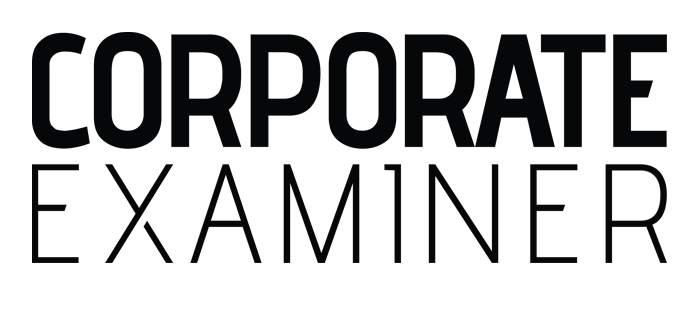Accountability is key to doing well in both your personal and work life. In today’s fast-changing business world, it’s more important than ever. With strong leaders, companies learn that being accountable means being open, making better choices, and growing steadily.
Being accountable means setting clear goals and keeping track of your progress. It helps you stay focused and see how well you’re doing. Talking and getting feedback is also crucial. It helps teams work better together, understand each other, and always get better.
Being responsible for what you do and learning from mistakes is what makes someone accountable. Instead of hiding from mistakes, you own up to them, fix any problems, and learn from them. Being disciplined helps you stay on course, keep consistent, and keep your promises.
Being accountable isn’t just about how you act with others. It’s also about being your own boss. Setting high standards for yourself, having personal goals, and checking on your progress helps you grow and achieve more. This way, you become more resilient, improve your skills, and reach your full potential.
Accountability also helps teams and relationships. It builds trust, makes teams work better together, and creates a supportive place to be. When everyone is responsible for their actions, the whole team moves forward together. This leads to better communication and reaching common goals.
Companies that value accountability are seen as honest, reliable, and ethical. By being accountable, they build a good name for themselves. They’re seen as open, trustworthy, and caring. This brings loyal customers, strong partnerships, and sets them up for long-term success.
As we face the challenges and chances of 2023, it’s vital to embrace accountability. By focusing on ethical leadership and a culture of openness and accountability, businesses can reach their full potential. This leads to success for both individuals and companies.
Key Takeaways:
- Accountability is crucial for success in both personal and professional life.
- Clear goals and tracking progress help with focus and improvement.
- Communication and feedback improve teamwork and understanding.
- Learning from mistakes and taking responsibility for actions helps you grow.
- Self-discipline keeps you on track and helps you meet your goals.
- Accountability to oneself leads to personal growth and achievement.
- It strengthens relationships and supports a positive team environment.
- Being accountable builds trust and long-term partnerships in business.
- Embracing accountability sets businesses up for lasting success.
Setting Clear Goals and Tracking Progress
Setting clear goals is key to staying on track in any project. It’s important to define what you want to achieve and what the end result should look like. The SMART method is a great way to set goals. SMART stands for specific, measurable, achievable, relevant, and time-bound.
SMART goals help keep you focused and motivated. They are clear and leave no room for confusion. You can track your progress and see how well you’re doing. Goals should be realistic, match your dreams, and have a deadline to avoid putting things off.
Keeping an eye on your progress is vital. It lets you see how far you’ve come and what changes you need to make. Progress tracking is like a guide that shows you the way to your goals. It helps you see what’s working and what’s not, and it’s a way to celebrate your wins.
Example: Financial Goal Tracking
Let’s say Sarah wants to save $10,000 in a year for a house down payment. She plans to save $833.33 each month. Sarah checks her savings, keeps an eye on her money coming in and going out, and adjusts her spending. This way, she stays on track to meet her goal on time.
| Month | Monthly Savings | Total Savings |
|---|---|---|
| January | $833.33 | $833.33 |
| February | $833.33 | $1,666.66 |
| March | $833.33 | $2,499.99 |
| … | … | … |
| November | $833.33 | $9,166.65 |
| December | $833.33 | $10,000.00 |
Sarah tracks her savings each month and sees her total grow. This helps her check her progress, make changes if needed, and stay focused on her goal. By setting clear goals and tracking her progress, Sarah stays motivated to buy her new house.
Communicating and Seeking Feedback
Effective communication is key to accountability. Sharing goals and progress with others gets support and insights. Mentorship and partnerships help grow and motivate us.
Getting feedback from trusted people is vital. It helps us know ourselves better and spot our weak spots. For instance, feedback on leadership or how we present can help us grow at work.
Open and honest talk builds accountability in teams and companies. Regular meetings and updates keep things clear and make everyone feel responsible. By listening to others, we can keep improving and growing together.
Here’s how feedback and mentorship can change things:
“My mentor changed my career path. They gave me advice and feedback on my strengths and weaknesses. Through our talks and sharing stories, I learned a lot about myself. Their support made me set big goals and aim for the best. I think mentorship and talking openly are key to accountability in our careers.”
– Sarah Adams, Marketing Manager
Good communication, mentorship, and feedback make us take charge of our actions. They help us learn and grow. This makes our work better, our teams stronger, and our success bigger.
Benefits of Communicating and Seeking Feedback:
- Promotes support, encouragement, and motivation
- Facilitates self-awareness and identifies areas for improvement
- Enhances professional development and accountability
- Cultivates a culture of continuous improvement and growth
- Strengthens relationships and fosters teamwork
Mentorship and Feedback: A Powerful Combination
Mentorship and feedback change lives for those seeking accountability. Mentors guide, share their knowledge, and push us to do better. This helps us grow personally and professionally.
Feedback gives us insights and advice to do our best. It helps us grow, spot our weak spots, and get better at what we do. Together, mentorship and feedback create a strong support system for ongoing improvement.
This support system, with a mentor’s wisdom and feedback, helps us reach our goals. It makes a big difference in our lives.

Taking Responsibility for Actions and Learning from Mistakes
Being accountable means owning up to what you do and learning from your mistakes. It’s about saying you made a mistake, not making excuses. It’s a chance to grow and get better.
In today’s fast world, it’s key to own up to your actions for your own and your career’s growth. Instead of blaming others, those who are accountable see their own impact and accept the outcomes.
Learning from mistakes is key to being accountable. By looking back at past mistakes and their effects, you can spot areas to improve. This helps you avoid similar mistakes later.
Creating a culture of accountability and learning starts with open talk and helpful feedback. When mistakes happen, it’s important to be open about them and ask for advice from others. This teamwork approach helps everyone grow and makes the team stronger.
“Mistakes are proof that you are trying. Embrace them, learn from them, and grow.” – Richard Branson
Having a mindset that sees challenges as chances to learn is vital for taking responsibility and learning from mistakes. People with this mindset see failures as steps towards learning, not as a sign of their worth. This mindset builds resilience and a constant drive to get better.
By owning up to your actions and learning from mistakes, you become better at what you do. You help your team succeed and bring positive change to your organization.
| Benefits of Taking Responsibility and Learning from Mistakes | Steps to Foster Accountability and Learning |
|---|---|
|
|
Practicing Self-Discipline
Self-discipline is key to reaching personal and professional goals. It means staying focused, setting priorities, and managing your time well. By developing self-discipline, you can beat challenges, stay motivated, and reach your goals. Here are ways to improve your self-discipline:
- Create boundaries: Make clear rules and set aside specific times for work or personal growth. This helps you avoid distractions and work better.
- Avoid distractions: Find and reduce distractions around you. Turn off your phone, block social media, or find a quiet spot to focus.
- Set reminders: Use reminders or alarms to keep you on schedule. Digital reminders or sticky notes can help you stay disciplined and finish tasks on time.
- Partner with an accountability buddy: Work with someone who also values self-discipline. You can support and motivate each other to stay on track.
Building self-discipline takes time, patience, and effort. It’s a skill that gets better with practice. By working on self-discipline, you can improve your focus, manage your time better, and achieve long-term success.

The Benefits of Self-Discipline
Self-discipline helps you reach your goals and improves your life in many ways. Some main benefits are:
- Improved productivity and efficiency
- Enhanced focus and concentration
- Reduced stress and better work-life balance
- Increased self-confidence and self-esteem
- Greater time management skills
By using self-discipline strategies, you can reach your full potential. This leads to success in every part of your life.
Being Accountable to Oneself
Being accountable to oneself is key for growth in both life and work. When we set high goals and stick to them, we start a path of bettering ourselves. This means taking charge of our actions and results, which leads to success.
It’s important to set clear goals for oneself. By doing so, we make a plan for success. This could mean finishing tasks on time or following ethical codes. Keeping high standards helps us aim for the best.
To help with self-accountability, there are many strategies. One good way is to use reminders and routines to stay focused. Keeping a journal or using apps for personal growth can also show our commitment and progress.
Being accountable to oneself is not just about pleasing others. It’s also about growing within and reflecting on ourselves. Those who take charge of their mistakes and learn from them grow. They look for ways to get better, using failures to move forward.
When we hold ourselves accountable, we show strong commitment and discipline. This mindset helps us bounce back, adapt, and beat obstacles. It also builds trust and integrity in our personal and work lives.
Advantages of Being Accountable to Oneself
- Enhanced personal growth and development
- Increased self-confidence and self-esteem
- Improved time management and productivity
- Strengthened relationships through trust and reliability
- Empowerment to make proactive choices and decisions
In conclusion, being accountable to oneself means setting high goals, sticking to them, and taking responsibility for our actions. By doing this, we reach our full potential and set the stage for success in life and work.
The Impact of Accountability on Relationships and Teams
Being accountable is more than just a personal trait. It deeply affects relationships and teams. When people put accountability first, it builds trust and teamwork. This makes the group more united and responsible.
Trust is key in any strong relationship. When people are accountable, they show they can be counted on. This makes team members trust each other more. They know they can depend on each other to do their part.
Teamwork gets better with accountability. When team members are responsible for their actions, they work more efficiently. Everyone knows how their actions affect the team’s success. This makes them take their roles seriously and work together better.
Accountability also motivates others. When people act responsibly, they set an example for their colleagues. This creates a team culture where everyone aims to do their best. This not only improves team dynamics but also helps the organization grow.
In conclusion, accountability changes how we interact with others. It deeply impacts relationships and teams. By focusing on trust, teamwork, and accountability, we can improve our personal and work relationships. This leads to better team performance and success for the organization.
Conclusion
Business accountability is key to success in 2023 and beyond. It helps people grow personally and reach their goals. Setting clear goals and tracking progress keeps individuals focused and motivated.
Effective communication and seeking feedback improve collaboration and help us get better. Taking responsibility for our actions and learning from mistakes builds character and boosts performance.
Self-discipline ensures we stay consistent and resilient when facing challenges. Being accountable to ourselves means we stick to our personal and professional growth.
Business accountability greatly impacts relationships and teams. When everyone owns their actions, trust grows, and teamwork thrives. A culture of accountability makes success a shared goal.
As we look to the future, let’s remember that business accountability is more than just a trend. It’s the power behind personal and professional success. By embracing accountability, we open the door to growth, achievement, and a brighter future for us and our organizations.






